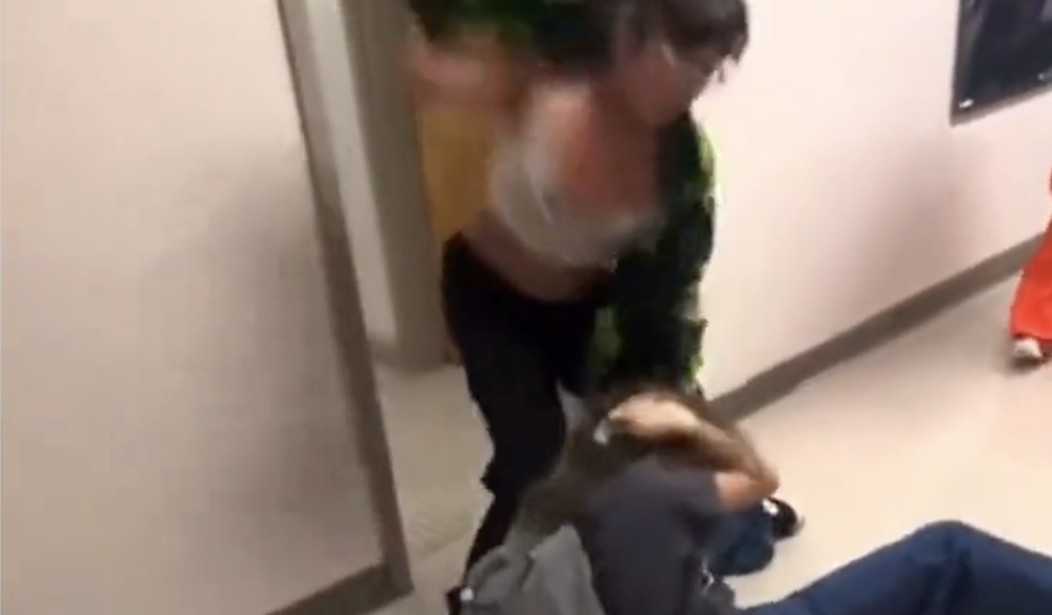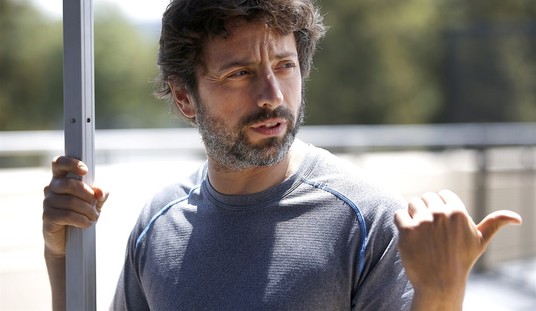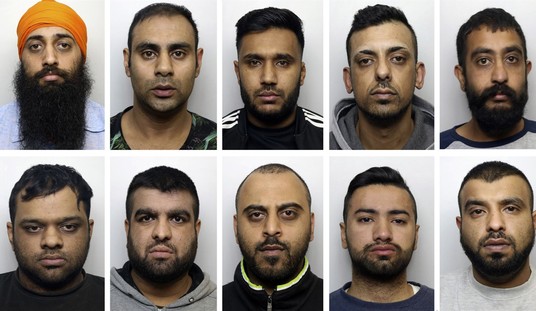Two videos hit Twitter today, allegedly showing the same trans student — a male identifying as female — assaulting three different girls at Tigard Tualatin School District in Oregon. Not much is known yet, from the attacker’s or the victims’ identities to any possible motive to exactly when the attacks occurred. All we have right now is the shock value, although there’s plenty of that.
My first instinct was to ignore this story. It’s a bit tawdry for even my tastes, and we’re still in the “Unknown Unknowns” on the Rumsfeld Epistemological Scale*. But in the Twitter coverage, something unusual caught my attention — unusual enough that I had to share it with my VIP readers.
I’ll post both clips at the end of this column for those who simply must watch them, but the real issue is, once again, one of free speech. Who controls who can say or share what online?
And is anything being done to reduce those controls?
I’m happy to say there’s good news on the First Amendment front.
The second video — that’s the one of the trans student assaulting two girls in the gym — was posted by Ian Miles Cheong who described it like so: “There is another video of the tr*ns identifying male student a*sault*ng two other girls in the same Oregon high school while his friends cheer on and join in.” The asterisks are in the original. Ian isn’t somebody who usually self-censors, so that pinged my sonar.
Scrolling down, a reply said to Ian, “I see you saw Chaya’s posts about forbidden words here.” Chaya, I knew at once must be Libs of TikTok founder Chaya Raichik. And what was this about a list of forbidden words?
“Yeah,” Ian replied, “I’ve been working with her on it.”
From earlier Thursday morning:
BREAKING: Here is a full list of words I have confirmed through my research that will demonetize you:
1. Dr*g qu**n
2. P**n
3. Gr**m*er
4. In*0c**ce/in*0ce*t
5. Tr*ns
6. L*B*Q
7. P0I*ce
8. N*n-bl**ry
9. Ug*y
10. Am*nPlease share! will continue updating as I discover more!
— Chaya Raichik (@ChayaRaichik10) September 28, 2023
Look at that list again. “Amen” is one of the forbidden words that get users demonetized.
Getting demonetized on Twitter is a big deal even for people who don’t try to make money on Twitter because, as I understand it, it also means your posts get deemphasized. That is, they won’t show up on anyone else’s timeline, even if they follow you — i.e., shadowbanning. Twitter has my account so locked down that I barely bother any longer. I have less reach there than a guy whose hands sprout directly out of his shoulders.
But here’s the good news — and it confirms my suspicion that Twitter censorship is baked deep into the platform’s code and is why owner Elon Musk has said it needs a complete rewrite.
“Elon name-dropped me in his Twitter Space,” Chaya tweeted later, “and said he saw my list of demonetized words that I reported on. Promises to fix it.”
“This list needs to be trimmed,” Musk said.
I suspect it can’t be eliminated because Twitter — sorry, X — still needs tools for suppressing illegal stuff, like the CSAM materials that were once so prevalent in the platform’s dark corners.
But if Musk is getting hands-on with lightening the censor’s heavy hand, that’s nothing but good news.
The videos follow after this brief aside.
*George W. Bush’s first Defense Secretary, Donald Rumsfeld, was a good man but a bad fit for the job after 9/11. He was brought in as a peacetime SecDef whose job was supposed to be reforming the Pentagon. When we found ourselves at war just eight months into Bush’s first term, he should have taken Rumsfeld aside and given him the Tom Hagen talk from “The Godfather”: “You’re not a wartime Consiglieri, Don. Things could get rough with the move we’re making.”
But Rumsfeld gave great press conferences. Maybe the most famous example was when he explained — to reporters who seemed to not understand at all what Rumsfeld was saying — the ambiguities of warfare:
Reports that say that something hasn’t happened are always interesting to me, because as we know, there are known knowns; there are things we know we know. We also know there are known unknowns; that is to say we know there are some things we do not know. But there are also unknown unknowns — the ones we don’t know we don’t know. And if one looks throughout the history of our country and other free countries, it is the latter category that tends to be the difficult ones.
Rumsfeld gave a perfect lesson in epistemology in just 88 words. And the know-nothings in our infotainment industry roasted him for it as though he was the uninformed idiot.
I distilled the lesson even further into the Rumsfeld Epistemological Scale for determining the certainty of what you think you know. In order of decreasing certainty, there are Known-Knowns, Known-Unknowns, and Unknown-Unknowns. Six words, four of them repeats — that’s it. It’s useful to apply the Scale to the details of any story I’m writing about, preferably before I start writing about it.
You should use it in your own life, too.
Trans male attacks female student in Oregon high school. This was certainly planned given multiple people were filming. All involved should be suspended and he should be charged with assault as a male
Identify as you wish, but you can't hide from your innate sex characteristics pic.twitter.com/Ov1CQ4ZycY
— Riley Gaines (@Riley_Gaines_) September 28, 2023
There is another video of the tr*ns identifying male student a*sault*ng two other girls in the same Oregon high school while his friends cheer on and join in. pic.twitter.com/jNSL3UjdFe
— Ian Miles Cheong (@stillgray) September 28, 2023








